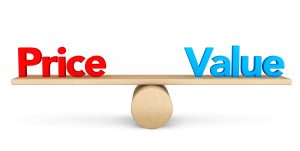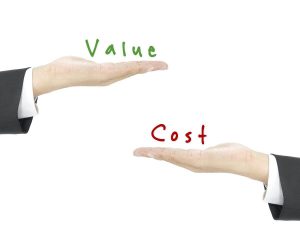Proposed Regs Would Impact Family Limited Partnerships
A popular tax saving technique used by wealthy taxpayers involves transferring assets such as real estate or securities to a family limited partnership, followed by a gift of partnership interests to family members. For estate and gift tax purposes, the value of partnership interest transfers are discounted, that is the transfers are reported for less than the value of the underlying partnership assets.
Discounts are permitted because partnership interests transferred are minority interests and also subject to significant restrictions, such as restrictions on transferability of the partnership interest. Although the Internal Revenue Service has contested these discounts, Federal Courts have consistently allowed discounts in the 30% to 35% range for cases with the correct fact pattern.
 Last week, the Treasury issued proposed regulations which, if adopted, would severely limit taxpayers’ ability to discount for intra-family wealth transfers. As they would affect family limited partnerships, the proposed regulations would require that in family controlled entities, many of the restrictions giving rise to discounts would be disregarded, effectively eliminating such discounts. If discounts are eliminated, property transfers would be at fair market value of the underlying property, potentially resulting in increased federal estate and gift taxes.
Last week, the Treasury issued proposed regulations which, if adopted, would severely limit taxpayers’ ability to discount for intra-family wealth transfers. As they would affect family limited partnerships, the proposed regulations would require that in family controlled entities, many of the restrictions giving rise to discounts would be disregarded, effectively eliminating such discounts. If discounts are eliminated, property transfers would be at fair market value of the underlying property, potentially resulting in increased federal estate and gift taxes.
Now Is the Time to Transfer Wealth to Family Members
The proposed regulations are subject to a 90-day public comment period, and will not go into effect until the comments are considered and then 30 days after the regulations are finalized. If you have a federally taxable estate and are considering wealth transfers, now is the time to do it. Although there is uncertainty whether the proposed regulations will be adopted, and if they are adopted what the final version will say, the window may be closing on an opportunity for intra-family wealth transfers at a greatly reduced transfer tax cost.

 All limited partners in Giustina Land were members of the same family, or trusts for the benefit of members of the family. The partnership agreement provided that a limited partner interest could be transferred only to another limited partner or to a trust for the benefit of another limited partner unless the transfer was approved by the two general partners.
All limited partners in Giustina Land were members of the same family, or trusts for the benefit of members of the family. The partnership agreement provided that a limited partner interest could be transferred only to another limited partner or to a trust for the benefit of another limited partner unless the transfer was approved by the two general partners. As evident from these questions, the thing to focus on is the future. Although the seller will certainly focus on past performance, what happened twenty, ten, or five years ago is of little significance; you want to know what will happen in the future.
As evident from these questions, the thing to focus on is the future. Although the seller will certainly focus on past performance, what happened twenty, ten, or five years ago is of little significance; you want to know what will happen in the future.




 In a business sale, the seller prefers to sell the stock representing the business ownership, but the buyer prefers to purchase the assets of the corporation. The seller wants a stock sale because it generates a capital gain, taxed at a 20% rate. The buyer prefers to purchase the assets because the full purchase price is allocated to the assets purchased, creating tax deductions for depreciation and amortization. In a stock purchase, the buyer steps into the seller’s shoes, receiving no tax benefit from the price paid until the business is sold. This issue is usually resolved by compromise, sometimes involving a price adjustment.
In a business sale, the seller prefers to sell the stock representing the business ownership, but the buyer prefers to purchase the assets of the corporation. The seller wants a stock sale because it generates a capital gain, taxed at a 20% rate. The buyer prefers to purchase the assets because the full purchase price is allocated to the assets purchased, creating tax deductions for depreciation and amortization. In a stock purchase, the buyer steps into the seller’s shoes, receiving no tax benefit from the price paid until the business is sold. This issue is usually resolved by compromise, sometimes involving a price adjustment. It is unlikely that any single action will result in a significant increase in cash flow, but the here are some areas where improvement may be achieved:
It is unlikely that any single action will result in a significant increase in cash flow, but the here are some areas where improvement may be achieved: Buying a business is an investment decision, no different than buying stock in a publicly traded company. When investing in public company, you consider two factors; how much can you expect to receive in dividends and what do you expect the stock price to be when you sell. Not all stocks pay dividends, but absolutely no sane person would purchase stock in a company if they expected the share price to go down during their period of ownership.
Buying a business is an investment decision, no different than buying stock in a publicly traded company. When investing in public company, you consider two factors; how much can you expect to receive in dividends and what do you expect the stock price to be when you sell. Not all stocks pay dividends, but absolutely no sane person would purchase stock in a company if they expected the share price to go down during their period of ownership.

